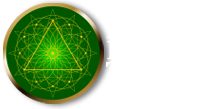Blogs
Trauma Healing Skills Part 1

Reactive or Trigger?
One of the skill sets that are so important in the healing of abuse is the way we communicate towards ourselves and to others. Are we reactive or trigger often? Are we unable to stay present or do things that seem to go over our heads without speaking to it? Do we present an upsetting issue to others much later than when it happened (sometimes months and years) expecting them to remember what occurred? Do we compare outside ourselves as a way to feel better (or less) about what we’ve done or not done?
Do we find it automatic to discuss controversial topics by using sarcasm, put downs, one-ups, self righteous assumptions, or name calling? If so, these are trauma responses. Yes, trauma runs deep in our lives and in the world as we have seen play out throughout modern times and history.
In order to know that we’re even responding in these ways, there needs time for attentive awareness. Do we tune into ourselves after we’ve had a conversation that might have been controversial or difficult?’ What do we feel? Heavy? Tired? Angrier? Balanced? Curious? Open? Do we want to feel understood or feel right?
For me, I wanted to be understood and heard, so I’d needed to learn the language skills that were missing to do this. I’m not perfect, but I really do want to be respectful to others even if they are projecting their feelings or just really o& in what they are presenting. Taking the ‘high road’ feels better than stooping to another’s level of dysregulation. How can we want peace if we are not learning ways to prepare for it by starting with ourselves?
Family
I was raised in a family that felt it was totally acceptable to gossip, compare themselves to others, and compare others to themselves. The ‘adults’ told us, children, what they thought our feelings and actions were to be. Controlling is too kind of a word.’ Their dictates would then be expected to be taken on as our identity.’
If we children ‘regurgitated’ this pattern to others, that was considered being rude and disrespectful. Such evaluations were to be kept ‘private’ behind the family’s closed doors of secrecy.
You can understand the confusion that would have occurred for a child. It was all about appearances and denial.
At 10 years old, I was threatened by both parents to be strapped in a hairdresser’s seat to have my hair cut and ‘permanented’, the horrible smelly ones. I cried hysterically that I didn’t want their threat or their decision of what they thought would make me pretty…it was my hair. The identity of what would make me feel attractive was forced to come outside myself. I never had the ability to decide how I wanted my hair until I was 16 years old. I didn’t feel pretty until I was in my late 30s after being divorced and in therapy.
Respectful communication towards others was limited to carefully crafted language that made things ambiguous in what was said–dangerously threatening, shamed in being wrong, or overtly insulting as a means to get a point across. Respect was, “Do what you’re told and not as I do” modelling. Children were to be polite and well-mannered according to a standard that was set by June Cleaver for the ‘Beaver’ while the parents were deceptive and untruthful.
This pattern was so divisional and divisive. It was also used between the siblings in order to create favouritism, manipulative connections,’ eschewed acceptance of self through others’ perceptions, and a false sense of loyalty and belonging. It’s the same patterns I see that has played out in the world.
If we do as we’re told, we are a ‘good’ person. We are keeping others ‘safe’. We are being considerate and caring about others. We are being an outstanding and exemplary citizen. It’s all a traumatic manoeuvrer for controlling others through obedience training, like a slave.
This starts, again, in the family with members who are going outside themselves. Without learning to check in if we actually feel somatically and emotionally connected to our self, we then take on those outer expectations as a way to live individually, but not individuated from others. It feels like losing a piece of one’s own heart. Where is self love when we live outside our self?
In discussing difficult issues, it starts with saying that there is actually an issue and taking action to do something about it. But in families whose awareness is very focused outside themselves, censorship occurs or ways to shut down the other in naming the situation. It becomes ‘taboo’ subjects, secrets that are shared without the other who is being discussed even involved. It’s so easy for authoritarian figures and institutions to install mandates when so many have been emotionally stifled or abused as children and don’t know these patterns.
Part 2 will look at the battles and power struggles, and how to manoeuvrer through these.
With care,
Judy
Helpful Creator’s teachings/downloads
I know what it feels like to, how to, when to, that it’s
possible, that I can, I do (or I am/am able to be):
- Respectful communication
- Emotional intelligence
- Living without taking on another’s identity of who I am
- Live without being divisional and divisive
- Take the ‘high road’ for my own self-dignity
- Live without comparing myself to others or others to me

